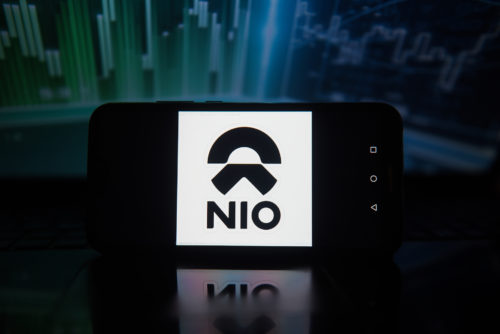Webull: The Chinese-owned app that could rival Robinhood
Trading stocks using mobile apps is big business, and is only growing bigger after the GameStop affair pitted hedge funds against Reddit users. One of the leading players in the U.S. is owned by a Chinese company.

Webull is a fintech company headquartered in New York City, founded by former Xiaomi and Alibaba executive Wáng Ānquán 王安全.
Like Robinhood, the app that was in the news last week for its suspension of trade in meme-stock GameStop, Webull offers easy, commission-free trading of stocks, ETFs, and cryptocurrencies on a mobile and web interface.
- With Robinhood down for traders who wanted to buy GameStop shares, and anger mounting at Robinhood, Webull saw a 1,548% spike in new sign-ups (per seven-day average).
- CEO Anthony Denie appeared on multiple American outlets from Yahoo Finance to Bloomberg to explain that Webull was also forced to suspend trading of GameStop, but that it had only blocked trading for two hours on January 29 — Robinhood had blocked trades until that evening.
- Webull had previously seen a five-fold increase in trading during the “pandemic stock-trading frenzy” in the spring of 2020.
Who is behind Webull?
While Webull was formed in the U.S. in May 2017, according to an SEC filing, the company behind it, Fumi Holdings Inc., was founded in 2016 (in Chinese), based in Changsha (Hunan Province) and New York.
- Fumi has taken more than 610 million yuan ($94.31 million) in investment in the past five years from companies such as mobile phone giant Xiaomi (in Chinese).
- Fumi had total assets of $4.5 million as of fiscal year 2019, according to the company’s SEC filing.
Wang Anquan, the founder and CEO of Fumi, served as technical director in the loan division of Alibaba’s Taobao, and assistant to the president of Alibaba Finance from 2006 to 2012, according to media reports (in Chinese).
- From 2013 until 2015, Wang seems to have spent some time as an executive at both Xiaomi and Hengfeng Bank.
- Xiaomi and Shunwei Capital, an investment company founded by Xiaomi’s CEO, Léi Jūn 雷军, together invested 50 million yuan ($7.73 million) in Fumi in 2016.
- Wang has told media (in Chinese) that Webull’s “strength is that we are using big data to do finance.”
Implications of Chinese ownership?
“Webull’s breakneck U.S. expansion is almost unheard of for a Chinese-owned financial company,” comments Bloomberg BusinessWeek, with U.S.-China tensions unlikely to be resolved quickly, and particular attention in Washington to China’s role in the American financial system.
Webull CEO Anthony Denier said that Webull is a separate entity from its Chinese parent company in a December 2020 interview: “We [Webull Financial] are simply a broker-dealer taking on U.S. customers, keeping all their data in the U.S., having only registered people in the U.S. deal with their account.”
That may not be enough to keep Webull out of trouble in the coming months.








